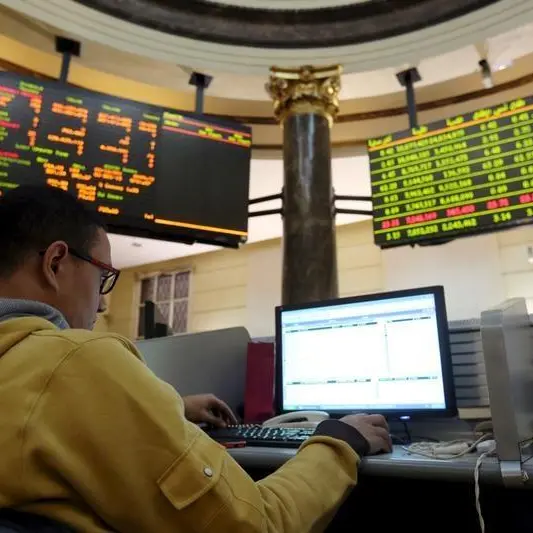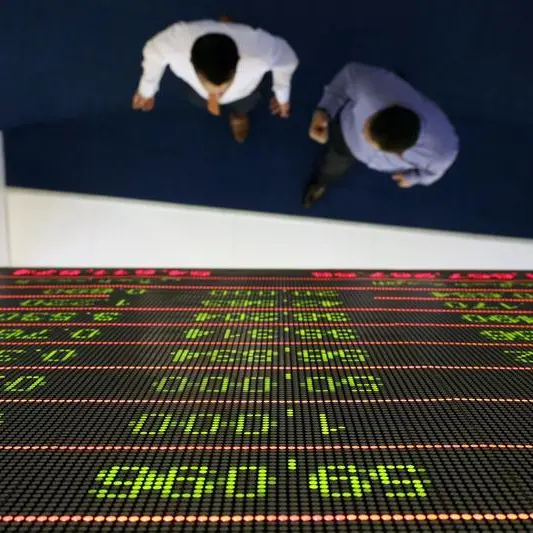PHOTO
SINGAPORE/LONDON - European shares ticked up along with the dollar on Thursday after both fell the previous day, while Asian stocks slipped, as trading volumes thinned ahead of the U.S. Thanksgiving holiday.
Europe's continent-wide Stoxx 600 index rose 0.62% in early trading after slipping 0.75% over the previous two sessions.
MSCI's broadest index of Asia-Pacific shares outside Japan fell 0.52%, but Japan's Nikkei climbed 0.56%.
Trading in U.S. equities and Treasuries was closed, but U.S. stock futures gauges ticked higher. Futures for the U.S. S&P 500 were up 0.11% after the index fell 0.38% on Wednesday.
Data on Wednesday showed U.S. consumer spending increased in October but the Federal Reserve's preferred measure of inflation ticked up to 2.3% in October, from 2.1% the previous month.
Together with the prospect of higher tariffs on imported goods, solid spending and inflation could narrow the scope for interest rate cuts next year.
"We continue to expect the FOMC to cut the Funds rate by 25 basis point at its December meeting," said economist Kristina Clifton at the Commonwealth Bank of Australia, referring to the rate-setting Federal Open Market Committee.
"However, another solid monthly core inflation for November will challenge the FOMC's view that inflation is trending down to 2% per year."
The dollar index, which measures the U.S. currency against six rivals, was 0.22% higher at 106.33 after dropping 0.7% in the previous session.
Chris Turner, global head of markets at lender ING, said Wednesday's fall in the dollar was likely driven in part by investors cashing in gains on U.S. stocks and bonds in November before the end of the month.
"Presumably, some of this activity took place in the more liquid markets yesterday than waiting for Thanksgiving-thinned conditions."
In a surprise move, South Korea's central bank cut benchmark interest rates for a second consecutive meeting on Thursday after inflation slowed more than policymakers predicted. The won weakened after the decision.
The yen was 0.55% lower at 151.91 per dollar after rallying to a one-month high in the previous session. The Asian currency is headed for its strongest week since early September on growing expectations of a rate hike from the Bank of Japan next month.
The euro was down 0.29% at $1.0535 after rising 0.7% in the previous session in the wake of European Central Bank board member Isabel Schnabel saying that rate cuts should be gradual and move to neutral, not accommodative, territory.
European bond yields fell as prices climbed , a welcome bit of respite for France's government, which saw the country's borrowing costs rise to their highest over Germany's since 2012 on Wednesday.
French Finance Minister Antoine Armand said on Thursday the French government was ready to make concessions over its budget, which has faced widespread opposition from both far-left and far-right politicians.
Investors were watching inflation data for euro zone countries and German states trickle in on Thursday before whole-bloc figures on Friday.
In commodities markets, oil prices dipped as worries over Middle East supply disruptions eased after a ceasefire deal between Israel and Hezbollah. Brent crude futures were down 0.4% at $72.54 a barrel.
Spot gold was up 0.37% at $2,645 per ounce but on course for a near 4% drop in November, its weakest monthly performance in over a year.
(Reporting by Ankur Banerjee in Singapore and Harry Robertson in London. Editing by Kim Coghill and Mark Potter)





















